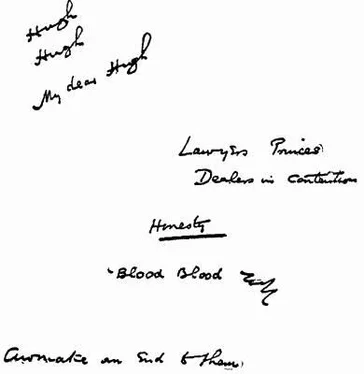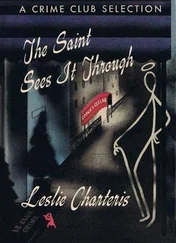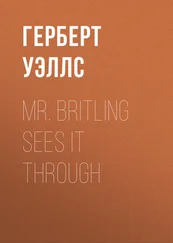Herbert Wells - Mr. Britling Sees It Through
Здесь есть возможность читать онлайн «Herbert Wells - Mr. Britling Sees It Through» весь текст электронной книги совершенно бесплатно (целиком полную версию без сокращений). В некоторых случаях можно слушать аудио, скачать через торрент в формате fb2 и присутствует краткое содержание. Жанр: Классическая проза, на английском языке. Описание произведения, (предисловие) а так же отзывы посетителей доступны на портале библиотеки ЛибКат.
- Название:Mr. Britling Sees It Through
- Автор:
- Жанр:
- Год:неизвестен
- ISBN:нет данных
- Рейтинг книги:4 / 5. Голосов: 1
-
Избранное:Добавить в избранное
- Отзывы:
-
Ваша оценка:
- 80
- 1
- 2
- 3
- 4
- 5
Mr. Britling Sees It Through: краткое содержание, описание и аннотация
Предлагаем к чтению аннотацию, описание, краткое содержание или предисловие (зависит от того, что написал сам автор книги «Mr. Britling Sees It Through»). Если вы не нашли необходимую информацию о книге — напишите в комментариях, мы постараемся отыскать её.
Mr. Britling Sees It Through — читать онлайн бесплатно полную книгу (весь текст) целиком
Ниже представлен текст книги, разбитый по страницам. Система сохранения места последней прочитанной страницы, позволяет с удобством читать онлайн бесплатно книгу «Mr. Britling Sees It Through», без необходимости каждый раз заново искать на чём Вы остановились. Поставьте закладку, и сможете в любой момент перейти на страницу, на которой закончили чтение.
Интервал:
Закладка:
He gave up science for art after grave consultation with his father, and the real trouble that had been fretting him, it seemed, was that now he repented and wanted to follow Cardinal to Cambridge, and—a year lost—go on with science again. He felt it was a discreditable fluctuation; he knew it would be a considerable expense; and so he took two weeks before he could screw himself up to broaching the matter.
"So that is all," said Mr. Britling, immensely relieved.
"My dear Parent, you didn't think I had backed a bill or forged a cheque?"
"I thought you might have married a chorus girl or something of that sort," said Mr. Britling.
"Or bought a large cream-coloured motor-car for her on the instalment system, which she'd smashed up. No, that sort of thing comes later.... I'll just put myself down on the waiting list of one of those bits of delight in the Cambridge tobacco shops—and go on with my studies for a year or two...."
§ 6
Though Mr. Britling's anxiety about his son was dispelled, his mind remained curiously apprehensive throughout July. He had a feeling that things were not going well with the world, a feeling he tried in vain to dispel by various distractions. Perhaps some subtler subconscious analysis of the situation was working out probabilities that his conscious self would not face. And when presently he bicycled off to Mrs. Harrowdean for flattery, amusement, and comfort generally, he found her by no means the exalting confirmation of everything he wished to believe about himself and the universe, that had been her delightful rôle in the early stages of their romantic friendship. She maintained her hostility to Edith; she seemed bent on making things impossible. And yet there were one or two phases of the old sustaining intimacies.
They walked across her absurd little park to the summer-house with the view on the afternoon of his arrival, and they discussed the Irish pamphlet which was now nearly finished.
"Of course," she said, "it will be a wonderful pamphlet."
There was a reservation in her voice that made him wait.
"But I suppose all sorts of people could write an Irish pamphlet. Nobody but you could write 'The Silent Places.' Oh, why don't you finish that great beautiful thing, and leave all this world of reality and newspapers, all these Crude, Vulgar, Quarrelsome, Jarring things to other people? You have the magic gift, you might be a poet, you can take us out of all these horrid things that are, away to Beautyland, and you are just content to be a critic and a disputer. It's your surroundings. It's your sordid realities. It's that Practicality at your elbow. You ought never to see a newspaper. You ought never to have an American come within ten miles of you. You ought to live on bowls of milk drunk in valleys of asphodel."
Mr. Britling, who liked this sort of thing in a way, and yet at the same time felt ridiculously distended and altogether preposterous while it was going on, answered feebly and self-consciously.
"There was your letter in the Nation the other day," she said. "Why do you get drawn into arguments? I wanted to rush into the Nation and pick you up and wipe the anger off you, and carry you out of it all—into some quiet beautiful place."
"But one has to answer these people," said Mr. Britling, rolling along by the side of her like a full moon beside Venus, and quite artlessly falling in with the tone of her.
She repeated lines from "The Silent Places" from memory. She threw quite wonderful emotion into her voice. She made the words glow. And he had only shown her the thing once....
Was he indeed burying a marvellous gift under the dust of current affairs? When at last in the warm evening light they strolled back from the summer-house to dinner he had definitely promised her that he would take up and finish "The Silent Places."... And think over the Irish pamphlet again before he published it....
Pyecrafts was like a crystal casket of finer soil withdrawn from the tarred highways of the earth....
And yet the very next day this angel enemy of controversies broke out in the most abominable way about Edith, and he had to tell her more plainly than he had done hitherto, that he could not tolerate that sort of thing. He wouldn't have Edith guyed. He wouldn't have Edith made to seem base. And at that there was much trouble between them, and tears and talk of Oliver....
Mr. Britling found himself unable to get on either with "The Silent Places" or the pamphlet, and he was very unhappy....
Afterwards she repented very touchingly, and said that if only he would love her she would swallow a thousand Ediths. He waived a certain disrespect in the idea of her swallowing Edith, and they had a beautiful reconciliation and talked of exalted things, and in the evening he worked quite well upon "The Silent Places" and thought of half-a-dozen quite wonderful lines, and in the course of the next day he returned to Dower House and Mr. Direck and considerable piles of correspondence and the completion of the Irish pamphlet.
But he was restless. He was more restless in his house than he had ever been. He could not understand it. Everything about him was just as it had always been, and yet it was unsatisfactory, and it seemed more unstable than anything had ever seemed before. He was bored by the solemn development of the Irish dispute; he was irritated by the smouldering threat of the Balkans; he was irritated by the suffragettes and by a string of irrational little strikes; by the general absence of any main plot as it were to hold all these wranglings and trivialities together.... At the Dower House the most unpleasant thoughts would come to him. He even had doubts whether in "The Silent Places," he had been plagiarising, more or less unconsciously, from Henry James's "Great Good Place."...
On the twenty-first of July Gladys came back repaired and looking none the worse for her misadventure. Next day he drove her very carefully over to Pyecrafts, hoping to drug his uneasiness with the pretence of a grand passion and the praises of "The Silent Places," that beautiful work of art that was so free from any taint of application, and alas! he found Mrs. Harrowdean in an evil mood. He had been away from her for ten days—ten whole days. No doubt Edith had manoeuvred to keep him. She hadn't! Hadn't she? How was he, poor simple soul! to tell that she hadn't? That was the prelude to a stormy afternoon.
The burthen of Mrs. Harrowdean was that she was wasting her life, that she was wasting the poor, good, patient Oliver's life, that for the sake of friendship she was braving the worst imputations and that he treated her cavalierly, came when he wished to do so, stayed away heartlessly, never thought she needed little treats, little attentions, little presents. Did he think she could settle down to her poor work, such as it was, in neglect and loneliness? He forgot women were dear little tender things, and had to be made happy and kept happy. Oliver might not be clever and attractive but he did at least in his clumsy way understand and try and do his duty....
Towards the end of the second hour of such complaints the spirit of Mr. Britling rose in revolt. He lifted up his voice against her, he charged his voice with indignant sorrow and declared that he had come over to Pyecrafts with no thought in his mind but sweet and loving thoughts, that he had but waited for Gladys to be ready before he came, that he had brought over the manuscript of "The Silent Places" with him to polish and finish up, that "for days and days" he had been longing to do this in the atmosphere of the dear old summer-house with its distant view of the dear old sea, and that now all that was impossible, that Mrs. Harrowdean had made it impossible and that indeed she was rapidly making everything impossible....
Читать дальшеИнтервал:
Закладка:
Похожие книги на «Mr. Britling Sees It Through»
Представляем Вашему вниманию похожие книги на «Mr. Britling Sees It Through» списком для выбора. Мы отобрали схожую по названию и смыслу литературу в надежде предоставить читателям больше вариантов отыскать новые, интересные, ещё непрочитанные произведения.
Обсуждение, отзывы о книге «Mr. Britling Sees It Through» и просто собственные мнения читателей. Оставьте ваши комментарии, напишите, что Вы думаете о произведении, его смысле или главных героях. Укажите что конкретно понравилось, а что нет, и почему Вы так считаете.






